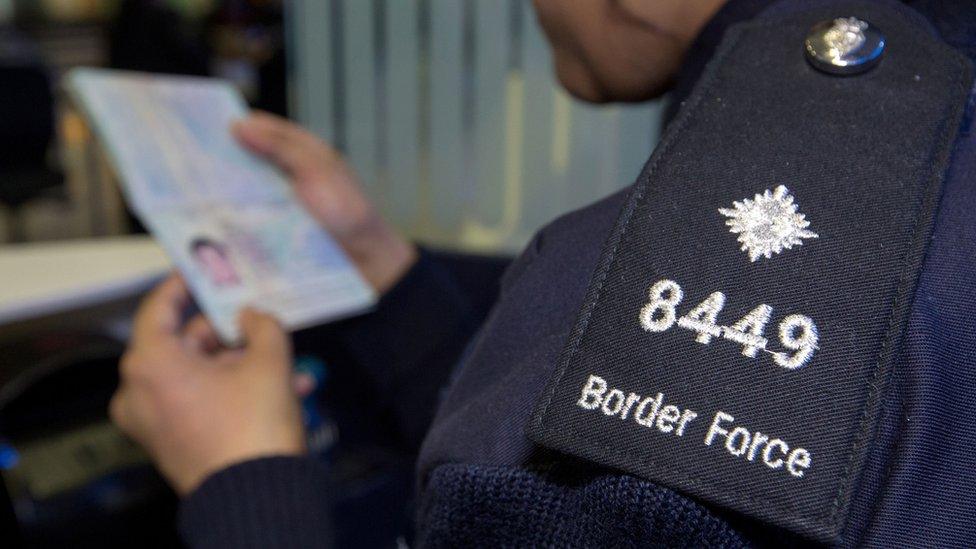How EU citizens' system will work
- Published

The scale of the task facing the Home Office is huge.
Over the next few years, it'll have to document the details of up to 3.2 million EU citizens who are currently living in the UK.
The process is expected to start in the middle of next year and on the current timetable will need to be completed by 2021.
Officials acknowledge it's a challenge, though they're understood to be confident it can be done, given that they're used to processing some 2.5 million visas and seven million passports every year.
However, the government accepts that the current system for handling residency applications from EU nationals will have to be overhauled.
Ministers want a "streamlined and user-friendly" system that is predominantly computer-based and uses government data, such as income records, to "minimise" the need to provide paper documents, such as council tax letters and utility bills.
It's thought applicants will have to prove their identity by presenting a passport; they may also need to provide biometric details.
ID cards?
Information will be checked against a database of criminal records.
Those who pose a "genuine, present and sufficiently serious threat to the public" will not be permitted to stay - these are the same rules that apply now for EU nationals applying for permanent residency.
The fee is likely to be about £65, which is what it costs EU nationals to obtain a residence card.
But those who've already applied for residence cards will have to apply again for settled status - last year, the Home Office received 90,000 such applications - though the government policy paper says the process for them will be as "streamlined as possible".
If successful with their application, EU citizens will be given a document, possibly an ID card, proving that they have settled status and the right to claim benefits and services.
Plans to get the new system up and running are well advanced and are believed to be entering a critical phase - though they depend on agreement between the government and the EU over the exact details.